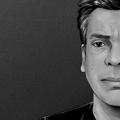matchaboba@wyrms.de reviewed Gateway by Frederik Pohl (Heechee Saga, #1)
Product of it's time...
2 stars
Ok... so. I like the world itself, I like the story with the aliens, the setting with the you-dont-know-where-you-go-spaceships and so on. But the main character is a white cis-hetero asshole who only has sex on his mind. Later in the book, homosexual desire is justified by the fact that mum's thermometer in her son's anus was the only physical sign of love (so obv. that makes you want d*** in there aswell). There are also discussions about whether he, as a heterosexual man, can stand to be on a spaceship with 3 homosexual men. If a person is black this is always explicitly mentioned, not so with non-black people. Yes the book was published in 1977 but I wouldn't necessarily recommend it if you are concerned with equality, LGBTQIA+ and anti-racism. It can be off-putting.
Ok... so. I like the world itself, I like the story with the aliens, the setting with the you-dont-know-where-you-go-spaceships and so on. But the main character is a white cis-hetero asshole who only has sex on his mind. Later in the book, homosexual desire is justified by the fact that mum's thermometer in her son's anus was the only physical sign of love (so obv. that makes you want d*** in there aswell). There are also discussions about whether he, as a heterosexual man, can stand to be on a spaceship with 3 homosexual men. If a person is black this is always explicitly mentioned, not so with non-black people. Yes the book was published in 1977 but I wouldn't necessarily recommend it if you are concerned with equality, LGBTQIA+ and anti-racism. It can be off-putting.





